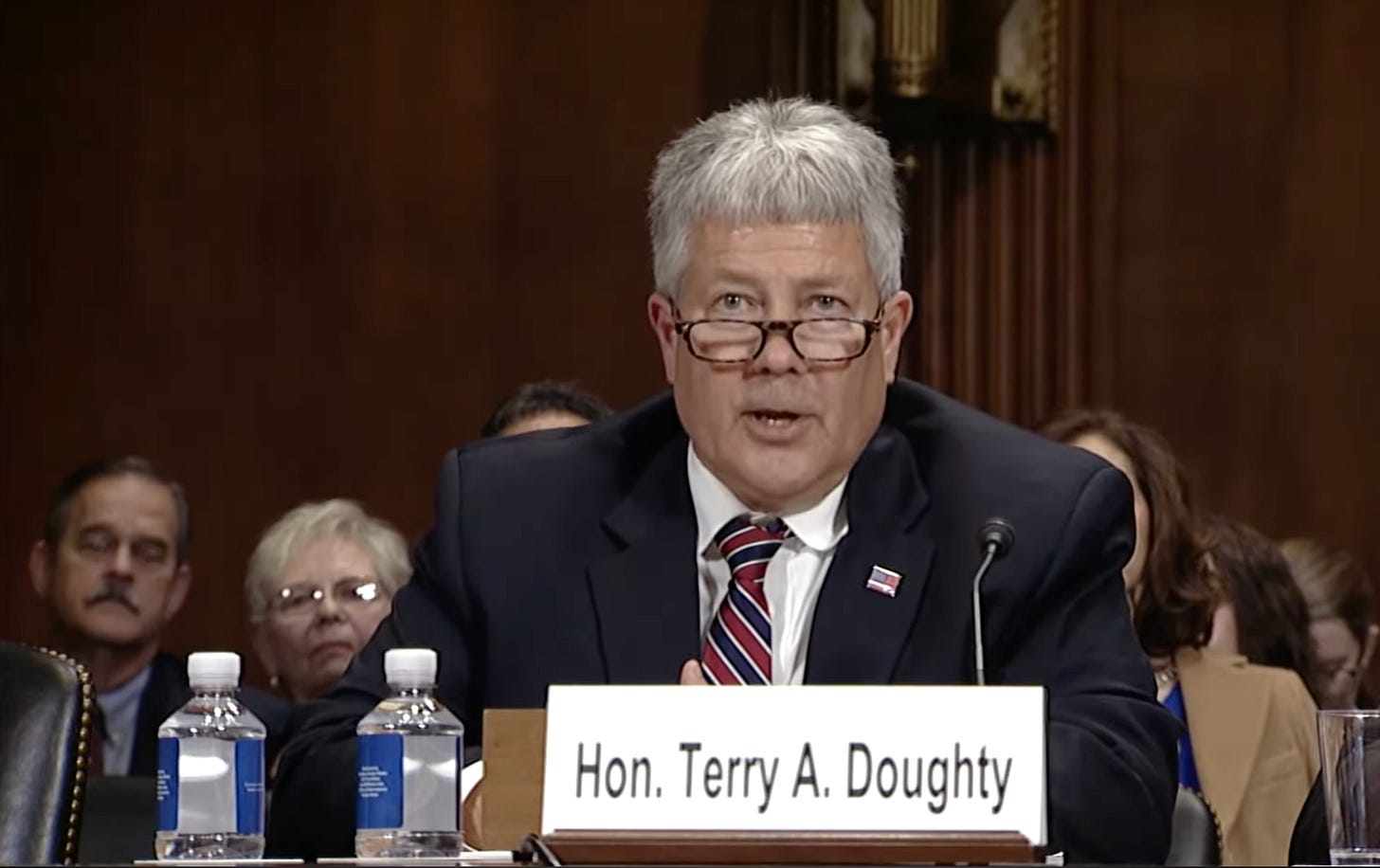A Trump judge turned the Twitter Files into federal policy
Terry Doughty just did purveyors of misinformation a huge solid.
On the Fourth of July, when the rest of us ate BBQ with our families and tried to comfort our dogs during fireworks, Trump-appointed federal district court judge Terry Doughty dropped his 155-page magnum opus barring the federal government from communicating with social media companies. Reading the decision makes for a wild, unhinged ride through Trump-era conspiracies and sounds far more like a Matt Taibbi Twitter Files thread than a judicial opinion.
This isn’t Doughty’s first time ruling in favor of conservative grievances. In November 2021, he issued a permanent nationwide injunction blocking the Biden administration rule that healthcare workers needed to be vaccinated against covid. In September 2022, he barred the administration from enforcing a mandate that required Head Start workers to be vaccinated and wear masks.
So Doughty had already proven himself an excellent choice for conservative states suing the government. By bringing the lawsuit in the Western District of Louisiana, litigants were almost guaranteed to draw a conservative, GOP-appointed judge like Doughty.
In this case, two states, Missouri and Louisiana, sued the administration, alleging the federal government had colluded with social media platforms to suppress certain speech, particularly what the government deemed “misinformation” about covid. Co-plaintiffs included an all-star cast of covid deniers and quacks.
Dr. Aaron Kheriaty was fired from UC-Irvine because he refused to get vaccinated, saying he had “natural immunity.” Another, Dr. Martin Kulldorf, is a biostatistician who advocated for allowing covid to spread so natural immunity could develop. Dr. Jayanta Bhattacharya, a professor at Stanford, became a favorite Fox News guest, going on Tucker Carlson’s show in November 2020 to say that the death rate from covid was much lower than what was being reported and to crusade against lockdowns. Jill Hines, an anti-vax advocate in Louisiana, pushed lies that the covid vaccine was hazardous to teenagers. And finally, Jim Hoft, the owner of the hard-right blog Gateway Pundit, garnered millions of page views and substantial advertising dollars by running pieces such as “Study Results: Facemasks are Ineffective to Block Transmission of COVID-19 and Actually Can Cause Health Deterioration and Premature Death.”
In other words, each of these plaintiffs was a purveyor of misinformation during the nation’s greatest health crisis since 1918.
These litigants also invoked the usual conservative bugaboos about social media: that the Hunter Biden laptop story was suppressed by social media platforms (never mind the fact that happened when Trump was still president) and that they weren’t allowed to spread lies about how the election was stolen from Trump. Of course, there were also complaints about “shadow-banning”— blocking a social media user’s content from being seen by others but without letting the user know. Many of them did indeed have posts removed from various social media platforms after spreading disinformation. What these folks saw as suppression, sane people see as necessary in a functioning society.
As Mike Masnick wrote at Techdirt, the plaintiffs treat benign, useful meetings designed to share information about security concerns such as foreign disruption of elections or address misinformation about things like covid as inherently nefarious and designed to suppress speech. But thanks to Doughty, this viewpoint is now enshrined in federal policy.



